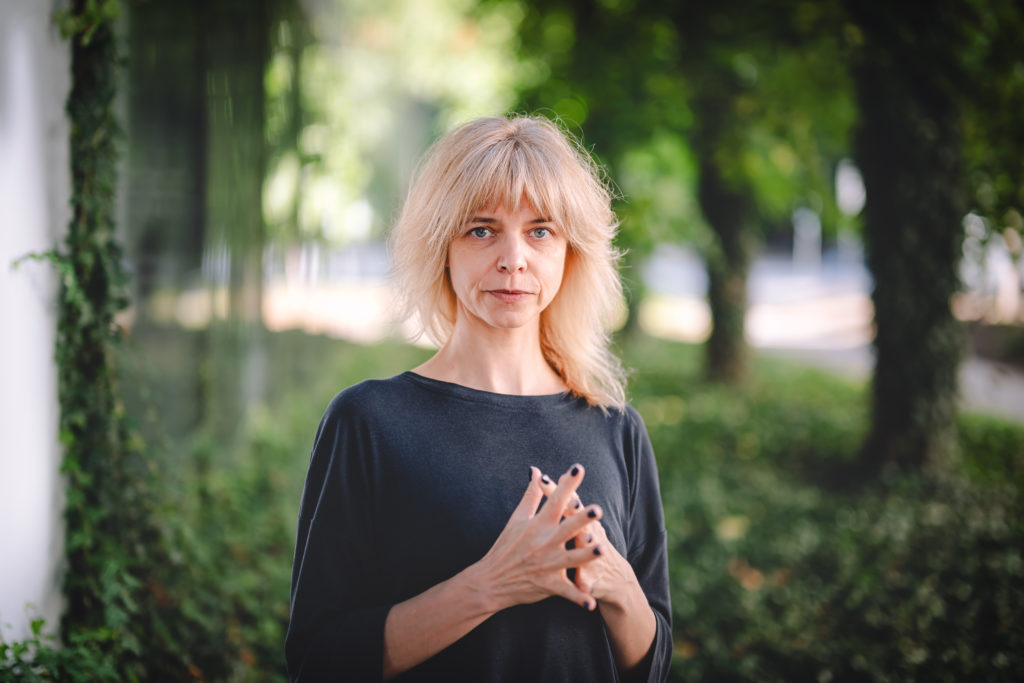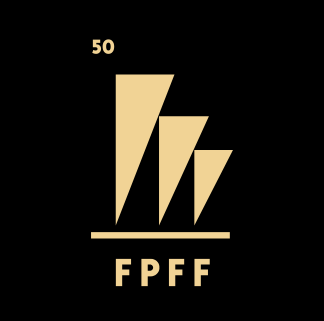Our task is to support young filmmakers

Interview with Joanna Łapińska, Artistic Director of the 49th Polish Film Festival in Gdynia
Waldemar Gabis: How many films were submitted by producers for this year’s Gdynia Festival?
Joanna Łapińska: Almost fifty feature films and one hundred and forty short films were submitted.
That’s a record number of short films.
And it’s worth highlighting, especially since we only deal with fiction in the Short Film Competition. It’s an enormous number of films submitted to the festival.
A total of twenty-four feature films will be presented in Gdynia across two competitions.
I was very keen for a second competition for feature films to appear in Gdynia, so that we could discuss new Polish cinema more broadly here. In the Main Competition, we will present sixteen films, and we will show eight in the Perspectives Competition. Together, twenty-four titles have been selected from almost fifty submissions. This definitely allows for a fuller discussion about what new Polish cinema is like.
Let’s remind ourselves how the selection process for both competitions works, as not everyone knows. In the Main Competition, you select twelve films, and the Organising Committee adds four more.
Yes. First, I present my twelve films to the Organising Committee, which then adds four titles. After that, I select films for the Perspectives Competition, using recommendations from the Organising Committee. This worked well this year; moreover, I can reveal that we had similar thoughts about the programme for the Perspectives Competition, and our selections overlapped.
The Perspectives Competition is a new addition. However, there is no Microbudget Film Competition.
It’s very good that there isn’t. That competition was poorly conceived from the start.
Why?
If we truly want to help these films, we must give them equal opportunities alongside every other film produced in Poland, allowing them to access everything the Gdynia festival offers, rather than confining them to a specially created category. There were micro-budget films that everyone was discussing, which were missing from the Main Competition. They would definitely benefit more from being presented in Gdynia if they were included in the main competition section. So, I wanted to dismantle this supposedly helpful competition (the Microbudget Films Competition) and replace it with a second competition section, giving greater opportunities to the films presented in it.
How did that work this year?
Let’s see, we are presenting two micro-budget films in the Main Competition: Loss of Balance by Korek Bojanowski and Under the Grey Sky by Mary Tamkovich, while another title, My Side of the River by Marek Kossakowski, has been included in the Perspectives Competition. Let’s add that these are debuts, and our collective task is to support young filmmakers; that’s the role I see for the festival in Gdynia.
Another new feature of the festival is a new jury for the debut or second film award.
For certain awards, we have introduced a new awarding system, known as cross-section, which is well-known abroad, especially at major film festivals.
How does it work?
All films eligible for a particular award from both competitions will be judged together. This is how the award for a debut or second film will be given, for which we have appointed a separate jury. The tradition of awarding such a prize for debuts is very long; just think of the Caméra d’Or, which has been awarded in this system at Cannes for several decades.(The award for best cinematic debut at the Cannes Film Festival has been awarded since 1978. –ed.).
How many films will the new jury watch?
A total of thirteen. And if we recall that we’ll be showing twenty-four titles in both competitions, and of those, thirteen are directorial debuts or second films, it’s clear that there will be a breath of fresh air in Gdynia this year.(smiles – ed.)
Let’s talk about this year’s festival programme. Besides the competition films, there are other screenings. I’m particularly excited about The Big Five section, where five filmmakers will talk about Polish films that are particularly important to them. This series was also featured last year.
This is an important section for me as well, and it was a great success last year. The chosen five films were shown to nearly full houses, and the discussions with the selectors after the screenings were excellent. Another great element was that, in several cases, filmmakers moderated the meetings. Often, the people discussing knew each other quite well, which allowed us to delve deeper into the worlds of those who selected the films. Their fascination with the titles we presented was clear, but we also learned a lot about the values they hold dear in life, how they see themselves as artists, and what is important to them.
This year, The Big Five features Olga Chajdas, Wojciech Marczewski, Andrzej Seweryn, Mariusz Włodarski, and Małgorzata Zajączkowska.
I’m very much looking forward to this year’s discussions, and I’m curious to see what they will bring. I’m convinced they will be just as deep as those from last year. I will add that the moderators for the discussions are also carefully chosen. We will be recording these conversations, but I encourage you to attend in person – it’s an extraordinary experience, and you can also ask questions.
This won’t be the only moment when classic films are highlighted at the festival.
We have prepared several such events. I invite everyone to the short film set Games and Figures, where we will be celebrating the 75th anniversary of the Educational Film Studio. I selected six films for this, each of which is brilliant and unique. Watching them all together on the big screen is something I envy the audience.
Which films are included?
The Gal and the Fiend by Piotr Szulkin, ABC Book by Wojciech Wiszniewski, Essay by Andrzej Barański, Grandmamauntsistercat by Zuza Banasińska, Skiing Scenes with Franz Klammer by Bogdan Dziworski, and War Song by Marek Koterski. After the screening, there will be a meeting with Andrzej Barański, Zuza Banasińska, Bogdan Dziworski, and Marek Koterski, which will be led by Michał Oleszczyk.
There will also be screenings related to the 75th anniversary of the Documentary and Feature Film Studios.
For this occasion, we have also selected four Teatroteka plays: Variable Interest Rate” by Teresa Czepiec, Jamaica by Bartosz Paduch, Dancing with the Victim by Luiza Budejko, and Too Slow by Jakub Roszkowski. Teatroteka – an original project by WFDiF – combining the worlds of film and theatre – will interestingly complement our programme this year.
Among the events will be concerts by Grażyna Łobaszewska and one dedicated to Jan A.P. Kaczmarek, as well as an exhibition of paintings and drawings by Wojciech Siudmak. What do you particularly recommend from the festival programme?
I recommend each of these projects, of course. I’d like to highlight the exhibition by Wojciech Siudmak, an artist who is quite iconic in certain circles. His drawings for Dune by Frank Herbert also hold a similar status. At the exhibition, we will showcase Siudmak’s works related to the Dune universe. I might not need to add this, as it is a known fact, but it was actually Wojciech Siudmak’s work that inspired Denis Villeneuve to make the contemporary adaptation of Dune.
Gdynia also provides space for discussions and debates. This is the goal and task of Gdynia Industry.
This is an incredibly important part of the festival, especially since we’ve prepared the programme to be as current as possible. It’s essential that we discuss issues that the film industry should be addressing today.
What topics will be discussed during Gdynia Industry?
This year, we are celebrating the 20th anniversary of the Gdynia For Children cycle at the festival, so one of the panels will focus on films for young audiences, discussing the current situation and future of this cinema. We will also talk about film music and composers, the role of public media, and the current situation and future of art-house cinemas, as well as inclusivity in the film industry.
I want to emphasise that we are organising this part of the festival in close collaboration with the Polish industry; we have great partners who support us in preparing Gdynia Industry events. This year, we are also joining forces with several important foreign partners; for example, we prepared the inclusivity panel together with the European Film Academy, and representatives from Europa Cinemas and CICAE will participate in the discussion about art-house cinemas.(Europa Cinemas is a network of cinemas, under the European Union Media Programme; Confédération Internationale des Cinémas d’Art et d’Essai – International Confederation of Studio Cinemas – ed.).
A significant part of Gdynia Industry is dedicated to young filmmakers.
Because I believe that helping them is one of the essential tasks of the Gdynia festival. That’s why we have mentoring programmes for young filmmakers, including the ongoing 1 on 1 series. This year, we also have new initiatives; one of them is Gdynia Campus, aimed at students from film schools across Poland, whose programme has been prepared by the students themselves. I’m impressed by their work; it will be an intensely packed event, well-planned in terms of content, diverse, encompassing workshops, panels, masterclasses, and networking events.
There will be even more attractions during the festival. No one should be bored.
I hope so. I kindly invite everyone to watch, participate in the meetings, and experience the festival with us.
Joanna Łapińska– a member of the European Film Academy; has been professionally involved in cinema for over 20 years, organising festivals and consulting on film projects. From 2002 to 2016, she was a member of the board of the New Horizons Association, the organiser of the New Horizons International Film Festival, where she served as artistic director. In September 2016, she became the programme director of the Transatlantyk Festival. She has been professionally connected with the Polish Film Festival since 2021, initially as the coordinator of the Gdynia Industry event, and from 2023 as the artistic director of the FPFF.


